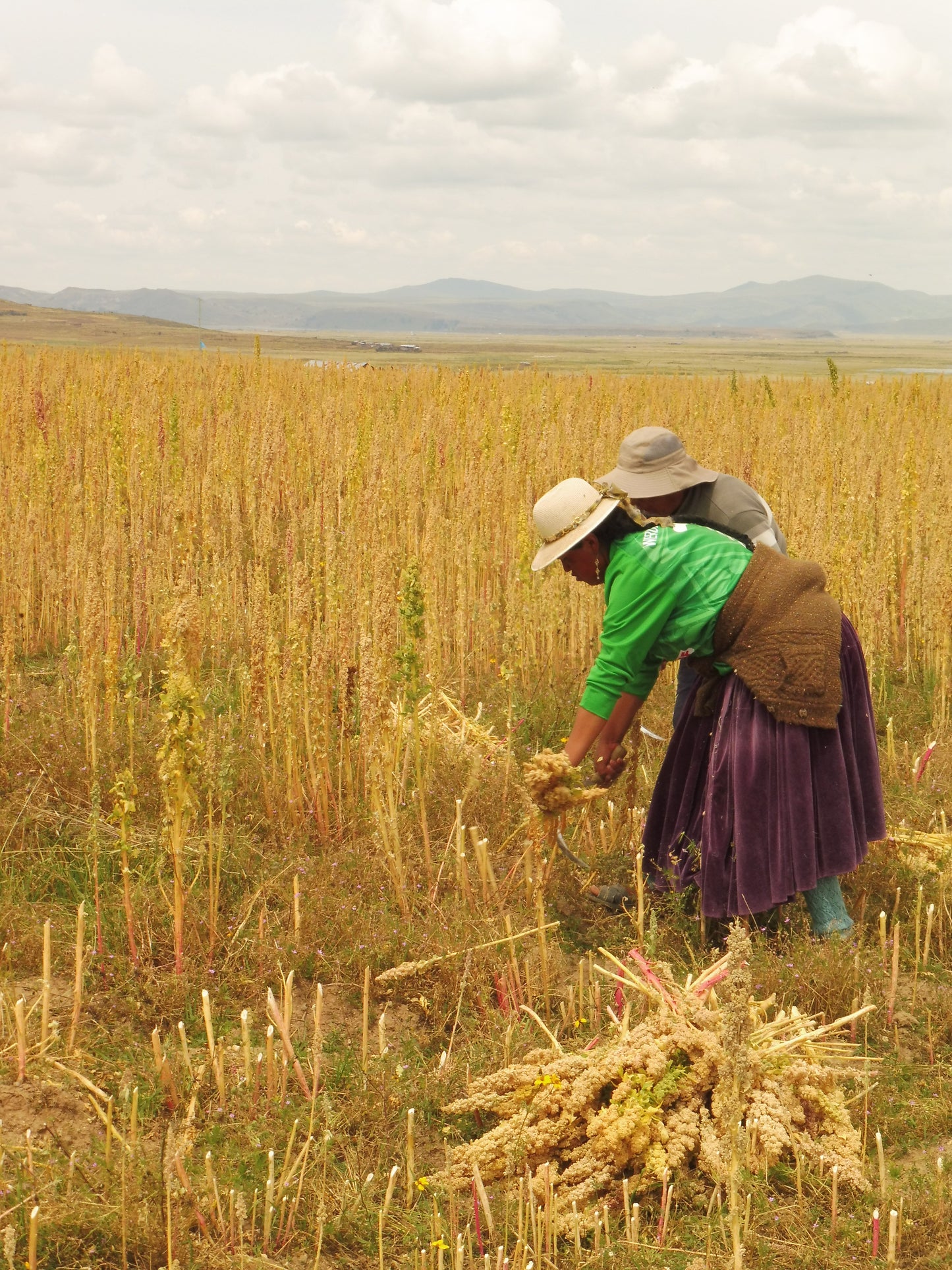
Genetically modified crops are now being made to produce crops that produce infertile seeds. So not only are farmers around the world having to buy the specific insecticide and pesticide that goes with their crops but each year are having to repurchase from the agrochemichal giants the seeds to be sown. That might just be OK for rich world farmers, although I doubt it, but for farmers in poor and middle income countries being irrevocably in hoc to an agrochemical giant cannot be sensible.
Traditional seeds, before the advent of GM crops, weren’t much better. Via selective breeding pretty much all strains of seeds now produce identical clones. From a food security point of view having fields of genetically identical plants is not ideal. Almost all non-GM varieties are now hybrids too, which means that the plants will grow but the seeds produced are not fertile. So even with non-GM crops you need to repurchase your seeds each year from the seed giants.
In the sensible world of Peruvian organic farming the very concept strikes them as insane. Given the multiple strains of quinoa available none of the above is an issue. Here we see Daniel Carenas, a member of the Cabana cooperative since its launch, seperating the seeds from the juciest quinoa plants for next years crop. The quinoa plants are put on a big plastic blanket and beaten with a wooden hockey stick like implement, to seperate the seeds from the bud. Daniel explained you need about 12kg of seed to sow one hectare, with each variety specifically chosen for the type of terrain it will be planted on. So, for example, Daniel’s land is unsuitable for sowing black quinoa.
Daniel’s favourite quinoa dish is for breakfast: pearl quinoa boiled in milk. This gives him strength for the day ahead. An Andean take on porridge if you like. To relax he enjoys chatting with his friends and playing basketball.
And don’t let up, but he ran off to get his sandals (made from discarded tyres) so as not to be bare foot for the photo. You would want to look your best too!
PS If you want to find out more about the debate there is an excellent French Association, Kokopelli, that has been fighting the corner for liberating seeds from the grips of the agrochemical multinationals for 20 years. Much of their site is translated into English at the following link:
